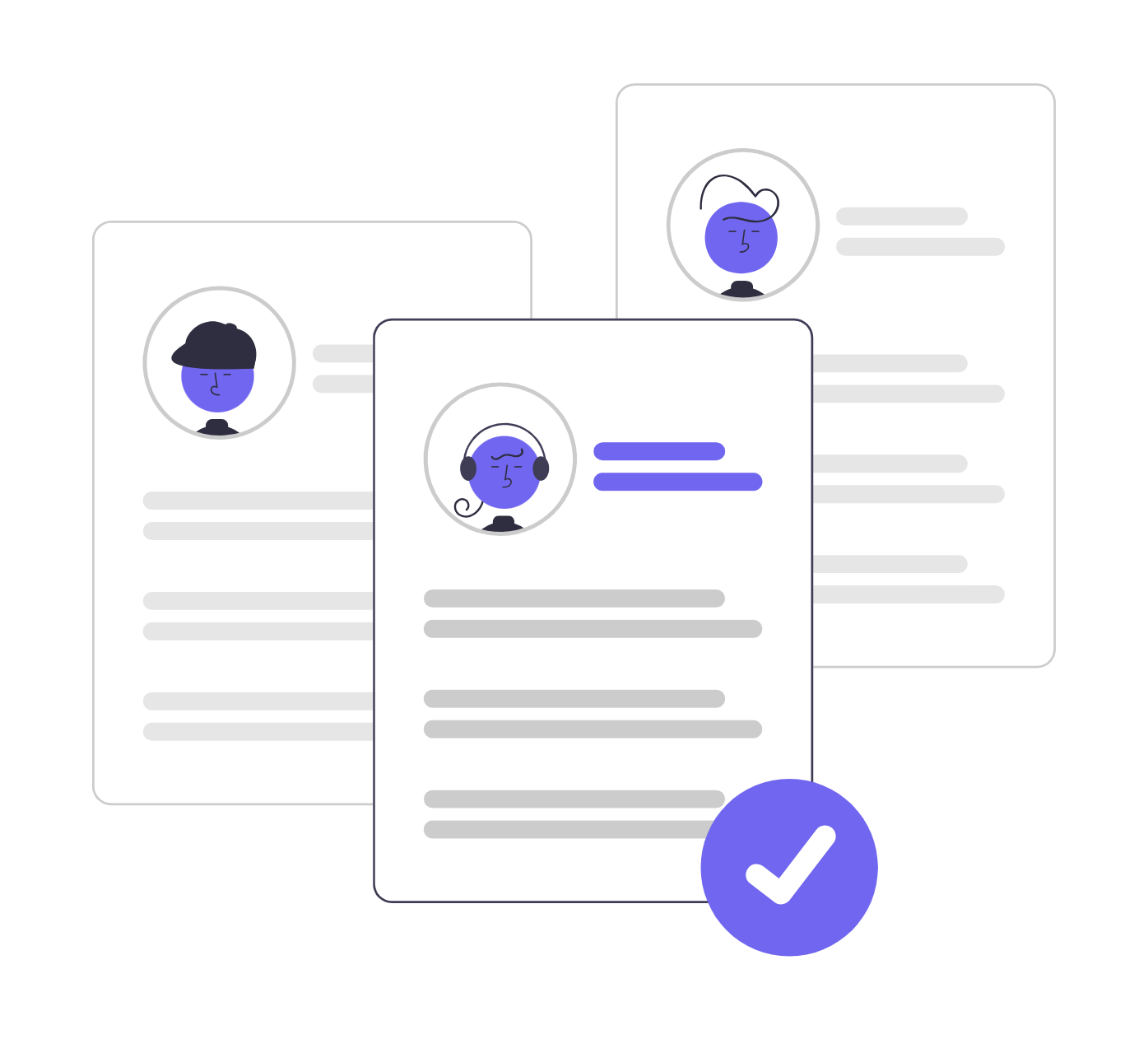Share
Introduction: Why Ethical Hiring Deserves More Than Lip Service
Hiring isn’t just about filling open roles—it’s about shaping the culture, future, and performance of your company. Yet, in the rush to scale teams and meet growth targets, many organizations overlook a critical component: ethics.
Ethical recruitment isn’t just a moral checkbox—it’s a strategic advantage. It influences your brand reputation, the quality of your hires, your ability to retain talent, and even your risk of legal exposure. Still, many hiring teams treat ethics as a soft value rather than a foundational practice.
In this post, we’re diving deep into why ethical recruitment matters more than ever, the real risks of ignoring it, and how to embed ethical principles across your entire hiring process.
1. What Is Ethical Recruitment (And What It’s Not)
At its core, ethical recruitment is about fairness, transparency, and respect. It means treating every candidate equitably—regardless of background, personal connections, or social standing—and ensuring that the hiring process is structured, unbiased, and honest.
It’s not just about avoiding overt discrimination or complying with employment laws. Ethical recruitment is about:
- Communicating truthfully with candidates
- Avoiding bait-and-switch job descriptions
- Structuring interviews so every candidate has a fair shot
- Eliminating bias from evaluation processes
In short, it’s about doing the right thing—even when nobody’s watching.
Easily administer one-click skill tests with Workscreen-This way you can assess candidates based on real-world ability—not just credentials like résumés and past experience. This helps you hire more confidently and holistically.

2. Why Ethical Recruitment Is a Business Imperative (Not Just a Moral One)
Ethics and performance are not at odds. In fact, companies that prioritize ethics in hiring tend to outperform those that don’t—because they:
• Attract better candidates: Top talent increasingly values trust, fairness, and transparency.
• Retain more employees: Ethical hiring often leads to better-fit candidates who stay longer.
• Protect their reputation: A fair, respectful process enhances your brand—even among those you don’t hire.
• Avoid costly mistakes: Ethical hiring reduces the risk of discrimination lawsuits and backlash from poor candidate experiences.
According to the LRN Ethics Study, 94% of workers say it’s “critical” or “important” to them that their employer is ethical. That expectation starts with how they’re treated during the hiring process.
Workscreen Eliminates low-effort applicants—including those who use AI Tools to apply, copy-paste answers, or rely on "one-click apply." This way, you focus only on genuine, committed, and high-quality candidates—helping you avoid costly hiring mistakes.

3. The Hidden Costs of Unethical Hiring Practices
Many companies still rely on outdated, biased, or rushed recruitment methods—and it’s costing them more than they realize.
Some of the most common issues include:
- Ghosting candidates after interviews
- Asking inappropriate or overly personal questions
- Misrepresenting job roles or growth opportunities
- Evaluating candidates based on “gut feel” or affinity bias
- Favoring referrals at the expense of diversity
These practices don’t just alienate good candidates—they damage your long-term brand equity. One recruiter in a Reddit discussion put it bluntly:
“Being honest with candidates pays off in the long run—you’re building a network, not just filling a role.”
4. 5 Core Pillars of Ethical Recruitment (And How to Apply Them)
1. Transparency
Start by being upfront. Candidates should know what they’re signing up for—compensation, role expectations, work culture, and next steps.
- Include salary ranges in job postings
- Outline the hiring process upfront
- Share truthful insights into day-to-day responsibilities
2. Consistency
Every candidate should go through the same process. This includes:
- Standardized interview questions
- Structured scoring rubrics
- Equal interview lengths and formats
Improvising interviews might feel more natural, but it opens the door to bias and missed signals.
3. Inclusivity
An ethical recruitment process ensures no one is disadvantaged due to their background. Practices that support this include:
- Writing inclusive job descriptions
- Removing demographic data from resumes (blind screening)
- Avoiding over-reliance on referrals that reinforce homogeneity
4. Candidate Experience
A respectful process signals to candidates that they’re valued—even if they don’t get the job.
- Avoid ghosting
- Provide updates at each stage
- Offer feedback where possible
Positive experiences are remembered (and shared). Negative ones travel even faster.
5. Long-Term Fit Over Short-Term Wins
Ethical hiring doesn’t stop at technical skills. It considers:
- Values and mission alignment
- Growth potential
- Motivation and personal goals
Hiring only for “today’s needs” often leads to quick turnover and cultural friction down the line.
5. Why Candidates Actually Care About Ethics (More Than You Think)
While salary and benefits remain critical, they’re not the only—or even primary—deciding factor for many candidates. Ethics, transparency, and how a company treats people during the hiring process are becoming serious differentiators.
In one Reddit discussion, a recruiter noted:
“Ethics is expected. Unethical behavior just shows what kind of person or company you are.”
Candidates—especially those with multiple offers—will choose the company that respects their time, communicates clearly, and operates with integrity.
And when companies fall short? Word gets around fast. Review platforms like Glassdoor and Blind are filled with stories of unethical interviews and misleading hiring tactics.
6. How to Operationalize Ethics in Your Hiring Process
Ethical hiring isn’t just a philosophy—it’s a system you can build. Here’s how to start:
- Create a formal ethical recruitment policy that outlines fair treatment, inclusion, and transparency
- Growth Train hiring teams on unconscious bias, inclusive interviewing, and equitable evaluation
- Motivation Audit your job descriptions to remove biased or exclusionary language personal goals
- Use structured interviews and scoring rubrics to ensure consistency
- Gather candidate feedback to continuously improve your hiring experience
These aren’t “nice-to-haves.” They’re table stakes for a modern, competitive hiring strategy.
7. Tools and Frameworks That Support Ethical Hiring
Technology can help scale ethical hiring—if you choose the right tools. Look for platforms or workflows that enable:
- Blind resume reviews
- Structured skills-based assessments
- Interview scorecards and calibration tools
- Diversity analytics and inclusive language checkers
Avoid tools that prioritize volume over quality or reinforce bias through vague AI algorithms. Ethical hiring requires both human judgment and thoughtful system design.
Conclusion
Ethical recruitment isn’t just the right thing to do—it’s the smart thing to do. It attracts better candidates, strengthens your brand, reduces risk, and leads to higher retention. In a world where reputation spreads fast and top talent is increasingly selective, fairness is no longer optional.
The hiring process is your company’s first impression. Make it one built on integrity, clarity, and respect—and you’ll build a workforce that reflects those same values.
FAQ
Rushing the hiring process often leads to mismatches, higher turnover, and reputational damage. Ethical hiring may take slightly longer, but it results in stronger long-term fits, better performance, and a healthier company culture.
Ethical hiring boosts employee retention, improves team diversity, protects your employer brand, and reduces the risk of legal issues. It also helps attract top talent who are increasingly seeking employers that align with their values.
Yes. Ethical hiring doesn’t require expensive tools—it starts with intention and structure. Standardizing interviews, writing inclusive job descriptions, and being transparent with candidates are low-cost, high-impact steps any business can take.
Transparency is foundational. It means being honest about salary, expectations, company culture, and timelines. Candidates trust companies that communicate openly, which increases acceptance rates and reduces post-hire dissatisfaction.

